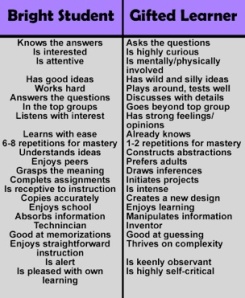Skipping a grade at school used to be fairly common in the 80’s and 90’s as parents and educators would allow students who were excelling to skip a grade. The thinking behind it was that students who are way ahead of the curve, get bored in class and become listless. They get so accustomed to being ahead of the others that they stop paying attention and that may actually lead to poor academic performances down the line. Skipping a grade comes with social consequences however, and these may actually lead to bigger problems. If your student has an opportunity to skip a grade, you have to consider very carefully what the right course of action is.
What to Consider
Schools take a number of factors into consideration when weighing the suitability of candidates including intellect, achievement, physical size, peers, motor skills, and social and emotional development. Of course intellect and achievement is probably what alerted them to the possibility in the first place. Physical size is important because if your child is so much smaller than their new peers, they may feel awkward and may not be able to fit in socially.
The same goes for social and emotional levels. If your child prefers to mix with adults or older students, skipping a grade may actually help them feel like they can relate better to their new peers. If they have firm friends in their current grade and enjoy a healthy, happy social life, skipping a grade could have a negative impact on their social and emotional wellbeing.
Get a Professional Assessment
Once you have the recommendations of the teachers and other professionals at your student’s school, ask your pediatrician for a reference to a professional education therapist. They will spend time with your student to determine their abilities in all the pertinent areas from emotional maturity to academic ability. Getting a professional opinion will help you to make an informed decision.
Gifted students can be quirky and you must be sure that they can handle the social and emotional changes. If they can’t, moving a grade may keep them academically engaged, but the social and emotional toll may be too high. However, if you don’t move them, they may suffer academically and fail to reach their full potential. The dropout rate for gifted students is much higher than the average because of problems adapting socially and academically.
There are alternatives to skipping a grade that bridge the gap for students who are academically gifted. Some schools allow gifted students to skip subjects rather than grades. This means that if your child is in second grade, but is reading at a fourth grade level, they can join a fourth grade class for reading, but stay in their own class for the rest of the day. Students who are gifted can also join advanced classes where their particular academic needs are fulfilled. Students can take extra lessons with tutors who help to challenge them academically while keeping them in the same grade. As they enter higher grades they may even take college credit courses that allow them to enter college at a sophomore or higher standing. We had a student who remained in his class and when he graduated and entered the University at Buffalo he had 64 credit hours! After two years of undergraduate study he is now working on his PhD.
Discuss your options with your student, your teachers, principal, education therapist and tutors to find the very best solution for your student. Constantly monitor and reassess the situation so that you are able to provide the most suitable solutions as their needs change.



